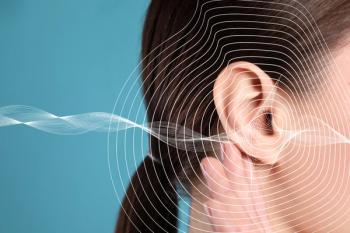
Case 2: Starting a Patient on Intranasal Esketamine
Lisa Harding, MD, and Angelos Halaris, MD, PhD, APA, ACNP, CINP, discuss their thoughts on starting treatment with intransal esketamine and what to expect.
Episodes in this series

Lisa Harding, MD: What are your thoughts on treating this patient with intranasal esketamine? How quickly do you think the patient would have had a response?
Angelos Halaris, MD, PhD, APA, ACNP, CINP: Excellent question. I’d like to first ensure that everything else has been done prior to considering intranasal esketamine and rule out other conditions. Everything we talked about a few minutes ago is important, including the thorough work-up and psychiatric history. Assuming all these things have been done, then I believe we’re dealing with a case of true TRD [treatment-resistant depression] and not presumptive TRD. I make a distinction between these 2. In my book, true TRD is the 1 that has ruled out all potential contributory factors, including the pharmacogenomic testing. If all these criteria have been met and we have a patient with true TRD, then I’d consider intranasal esketamine.
Lisa Harding, MD: I want to touch on the other therapies in terms of your thinking of where other modalities fall in treatment-resistant depression. What do you consider the frontline therapy? Would you refer a patient like this for another brain stimulation therapy, such as ECT [electroconvulsive therapy]?
Angelos Halaris, MD, PhD, APA, ACNP, CINP: Yes. ECT used to be almost a mainstay back in the old days. When I was training in psychiatry, it wasn’t quite daily routine, but it was used very frequently at almost all centers. That’s not the case now. In fact, if we want somebody to receive ECT, we have to search for a place where it can be done. It’s very effective, but the effect doesn’t last forever, and the issue of maintenance ECT is acknowledged. The potential for some kind of cognitive impairment is still an issue.
Lisa Harding, MD: Yes, I agree with you. And because this is a patient with chronic kidney disease whom you’re subjecting to generalized anesthesia—we treat these patients, and I don‘t know whether she has reached the stage where she’s on dialysis, because the scenario didn’t get into it—in thinking through where the therapies lie, I thought intranasal esketamine was a really good choice for this patient. My view of the question that I posed to you regarding where in the algorithm I put my treatments, we’ve moved away from plugging the patient into the algorithm, and we’re instead having the patient’s symptoms guide where we are. There’s no cookie-cutter patient who fits into a scenario; we’re looking at it. You raise a good point. If this patient is 42 years old, we don’t know what her job is. With the risk vs benefit for the cognitive impairment that could occur with a treatment like ECT, would they be a consideration?
This transcript has been edited for clarity.
Newsletter
Receive trusted psychiatric news, expert analysis, and clinical insights — subscribe today to support your practice and your patients.







